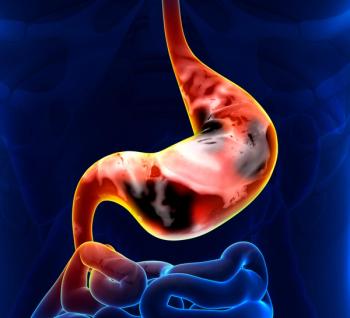
FDA Approves Blood-Based Colorectal Cancer Test
Clinicians now have a new tool to better identify colorectal cancer in its early and more treatable state.
Clinicians now have a new tool to better identify colorectal cancer in its early and more treatable state. On April 13, 2016, the German-American cancer molecular diagnostics company Epigenomics AG announced that the US Food and Drug Administration (FDA) approved the company’s product, Epi proColon®.
“We are excited by the FDA’s decision to approve Epi proColon® as the first and only blood-based colorectal cancer screening test,” said Thomas Taapken, PhD, CEO/CFO of Epigenomics, in a
Epi proColon® is an in vitro PCR (polymerase chain reaction) assay for the qualitative detection of SEPT9 gene (septin-9 protein) methylation in DNA isolated from the patient’s plasma. Cytosine residues of the SEPT9 gene are methylated in colorectal cancer (CRC) tissue, but not in normal colon mucosa. This tumor-specific methylation pattern can be used to detect cell-free DNA shed into the blood stream by tumor cells. Detection of CRC-derived DNA in blood plasma using the Septin9 methylation biomarker has been shown in previous clinical trials to be a reliable indicator of the presence of CRC.
Epi proColon® will be made available in the United States under a joint commercialization agreement with the company’s strategic partner Polymedco, a leader in noninvasive CRC screening technology. Epi proColon® is indicated for CRC screening in average-risk patients who choose not to undergo CRC screening by guideline-recommended methods such as colonoscopy and stool-based fecal immunochemical tests (FIT).
The test only requires a simple blood sample to be drawn as part of routine healthcare provider visits. Furthermore, there are no dietary restrictions or alterations in medication required for the test-this may encourage more patients to participate in CRC screening. The sample can be analyzed at a local or regional diagnostic laboratory. Epi proColon® has received FDA approval based on its safety and efficacy, which were established in three major clinical studies.
This blood test is already available in Europe, China, and selected other countries. As typically required by the FDA for new screening products, the company will initiate a post-approval study to show the long-term benefit of blood-based CRC screening using Epi proColon®.
The Epi proColon® test is not intended to replace colorectal screening with colonoscopy and the test is not intended to screen individuals under the age 50 who are considered to be at average risk for colorectal cancer.
Newsletter
Stay up to date on recent advances in the multidisciplinary approach to cancer.






































